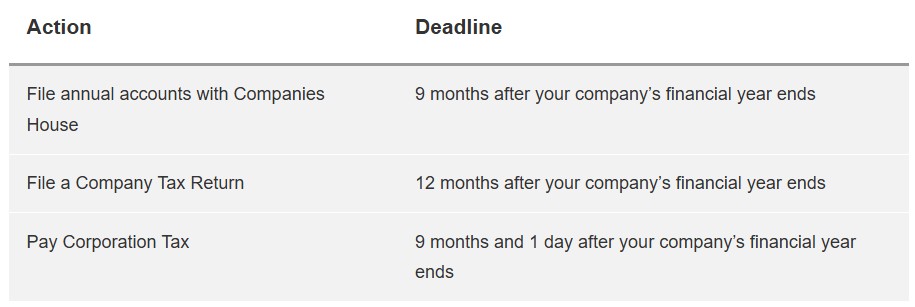Here you can download fact sheets which you can either print off or save on your computer so you can review them anytime.
Every year your company must file accounts at Companies House, but you might not want to file Full Accounts as this could give away too much information about your business.
Small employers (49 workers or less) and new employers have to start automatically enrolling their workers.
Cash basis might suit smaller businesses because, at the end of the tax year, you won’t have to pay Income Tax on money you haven’t received yet.
Dividends are a very tax efficient way to pass the profits of the business to its owners.
If your income tax rate is 20% (or zero) you won’t have to pay any tax when you are paid dividends but higher rate tax payers will pay additional tax.
Producers engaging entertainment performance services will not be required to deduct Class 1 NICs contributions from any payments they make to you. This includes additional use payments such as royalties. The engager will make payments to the entertainer gross of tax and NICs and the entertainer must declare these earnings as part of their normal self-employed Self-Assessment return.
The Term “IR35” became established following a Budget press release issued by the Inland Revenue on 23rd September 1999. That press release was called “IR35”. At its simplest, IR35 is the way in which the taxman closed a loophole that was allowing many contractors and freelance professionals to avoid paying large amounts of Tax and National Insurance.
By the time you actually start trading, you may have spent thousands of pounds on research and setting up the business.
Provided you have formally notified HM Revenue & Customs that you have started up a business, most of these costs are usually allowable as business expenses in the first year.
Research and Development (R&D) tax relief (or credit) is a company tax relief that can either reduce a company’s tax bill or, for some small or medium sized (SME) companies, provide a cash sum. It is based on the company’s expenditure on R&D.
Basically when you are self employed you spend money on 3 types of expense.
The Construction Industry Scheme (CIS) sets out the rules for how payments to subcontractors for construction work must be handled by contractors in the construction industry.
New analysis from Direct Line for Business, based on data from the Office for National Statistics, reveals that just over half of all UK small firms are run from the home of the business owner.
Registration – VAT is a tax that’s charged on most goods and services that VAT-registered businesses provide in the UK. It’s also charged on goods and some services that are imported from countries outside the European Union (EU), and brought into the UK from other EU countries.
https://www.companieshouse.gov.uk/forms/formsOnline.shtml
https://shop.qdosconsulting.com/freelancer/ir35-hub/resources
https://www.contractorcalculator.co.uk/declaring_dividends_paperwork.aspx
https://www.company-wizard.co.uk/resources/share_certificate.aspx
https://www.national-lottery.co.uk/player/files/syndicateagreement.pdf
https://www.gov.uk/government/publications/employee-ownership-company-model-documentation
https://www.hmrc.gov.uk/forms/64-8.pdf
https://www.hmrc.gov.uk/forms/starterchecklist.pdf
https://www.hmrc.gov.uk/forms/p46car.pdf
https://www.hmrc.gov.uk/forms/r85.pdf
https://www.hmrc.gov.uk/forms/p87.pdf
